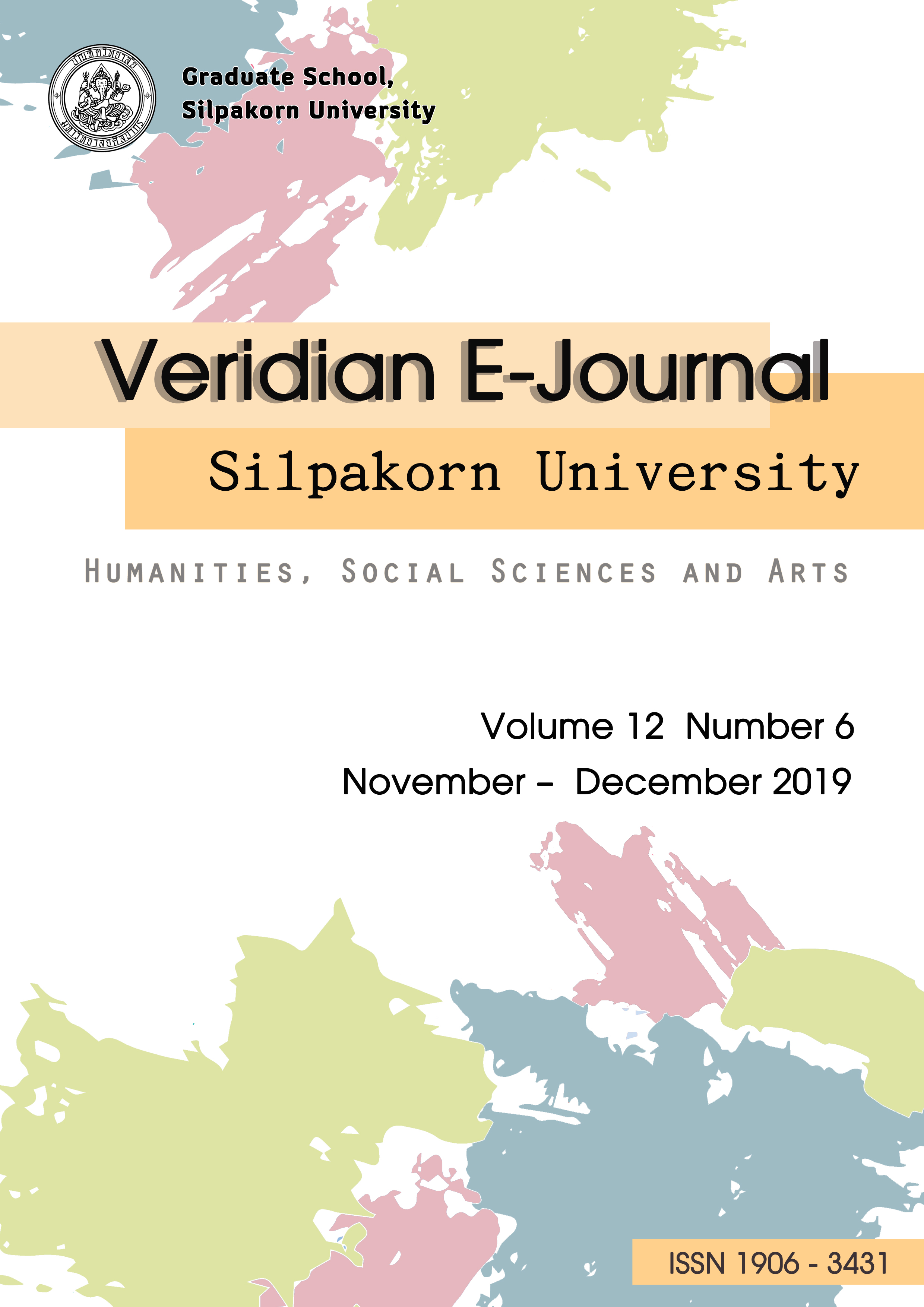ปัจจัยที่มีผลต่อพฤติกรรมการคัดแยกขยะของคน 4 Generations (Factors Affecting Waste Separation Behavior of 4 Generations)
Main Article Content
บทคัดย่อ
การศึกษาครั้งนี้มีวัตถุประสงค์เพื่อเปรียบเทียบระดับพฤติกรรมการคัดแยกขยะของคน4 Generations และค้นหาปัจจัยที่มีผลต่อระดับพฤติกรรมการคัดแยกขยะของคน 4Generations โดยกลุ่มตัวอย่าง คือ ประชากรที่อาศัยในเขตกรุงเทพฯ ประกอบด้วยกลุ่มคนใน 4 ช่วง ดังนี้ 1) กลุ่มเบบี้บูมเมอร์ (Baby Boomer) คือ กลุ่มคนที่เกิดในช่วง พ.ศ. 2489 – 2507; 2) เจเนอเรชั่นเอ็กซ์ (Generation X) คือ กลุ่มคนที่เกิดในช่วง พ.ศ. 2508 – 2522; 3) เจเนอเรชั่นวาย (Generation Y) คือ กลุ่มคนที่เกิดในช่วง พ.ศ. 2523 – 2540 และ 4) เจเนอเรชั่นแซด (Generation Z) คือ กลุ่มคนที่เกิดในช่วง พ.ศ. 2541 - 2552 การเก็บรวบรวมข้อมูลใช้แบบสอบถามจำนวน 400 ชุด ในเขตพื้นที่กรุงเทพฯ วิเคราะห์ข้อมูลด้วยสถิติเชิงพรรณนา ได้แก่ ความถี่ ร้อยละ ค่าเฉลี่ย และส่วนเบี่ยงเบนมาตรฐาน และสถิติเชิงอนุมาน คือ การเปรียบเทียบค่าเฉลี่ยมากกว่า 2กลุ่ม(F-test)และการวิเคราะห์ถดถอยพหุคูณ(Multiple Linear Regression)
ผลการศึกษาพบว่า กลุ่มคนทั้ง 4 Generations มีพฤติกรรมการคัดแยกขยะในระดับปานกลาง และหากพิจารณาในรายละเอียดพบว่า กลุ่มที่มีพฤติกรรมการคัดแยกขยะในระดับมากที่สุด คือ กลุ่มเจเนอเรชั่นเอ็กซ์ นอกจากนี้ ปัจจัยที่มีผลต่อระดับพฤติกรรมการคัดแยกขยะมีความแตกต่างกันในแต่ละช่วงวัย ดังนี้ (1) ตัวแปรแหล่งรับซื้อขยะรีไซเคิล แรงจูงใจภายในของการคัดแยกขยะ รายได้ต่อเดือน และระดับการศึกษา เป็นตัวแปรที่ใช้ทำนายพฤติกรรมเกี่ยวกับการกำจัดขยะและการคัดแยกขยะ ของกลุ่มเบบี้บูมเมอร์ ได้ร้อยละ 49.1 (2) ตัวแปรทัศนคติเกี่ยวกับความรับผิดชอบต่อการจัดการและคัดแยกขยะ และอัตราค่าธรรมเนียมขยะที่จ่ายต่อเดือน เป็นตัวแปรที่ใช้ทำนายพฤติกรรมการคัดแยกขยะของเจเนอเรชั่นเอ็กซ์ ได้ร้อยละ 25.9 (3) ตัวแปรทัศนคติเกี่ยวกับความรับผิดชอบต่อการจัดการและคัดแยกขยะ คนที่คัดแยกขยะในครัวเรือน และรายได้ต่อเดือน เป็นตัวแปรที่ใช้ทำนายพฤติกรรมการคัดแยกขยะของเจเนอเรชั่นวาย ได้ร้อยละ 26.7 (4) ตัวแปรทัศนคติเกี่ยวกับความรับผิดชอบต่อการจัดการและคัดแยกขยะ แรงจูงใจภายในของการคัดแยกขยะ และระดับการศึกษาเป็น ตัวแปรที่ใช้ทำนายพฤติกรรมการคัดแยกขยะของเจเนอเรชั่นแซดได้ร้อยละ 31.9 ซึ่งองค์ความรู้เหล่านี้จะเป็นประโยชน์อย่างยิ่งต่องานส่งเสริมการคัดแยกขยะเพื่อให้เกิดความสอดคล้องกับช่วงอายุของกลุ่มคนที่เข้าร่วมกิจกรรมและนำไปสู่ความสำเร็จของการคัดแยกขยะอย่างแท้จริง
This study aims to compare the varying degrees of waste separation behaviors among people in four generations, as well as to investigate the factors which influenced their waste separation behaviors. The population sample consisted of people living in Bangkok who were divided into 4 age groups: 1) Baby Boomer (born between 1946-1964); 2. Generation X (born between 1965-1979); 3. Generation Y (born between 1980-1997); and 4. Generation Z (born between 1998-2009). The data was collected from 400 questionnaires within Bangkok areas. Data were analyzed by using descriptive statistic, which includes frequency, percentage, mean, and standard deviation, and inferential statistic, which consists of analysis of variance and Multiple Linear Regression.
Results revealed moderate degrees of waste separation behaviors for all four generations. Further investigation also revealed that Generation X has the highest degree of waste separation behaviors of all the four age groups. In addition, there are different factors that influence the waste separation behaviors: (1) attitudinal variables concerning the responsibility and internal motivations for waste management and waste separation, and education levels, which predict waste separation behaviors of Generation Z with 31.9% accuracy; (2) attitudinal variables concerning the responsibility for waste management and waste separation, the person who handles waste separation in the household, and monthly income, which predict waste separation behaviors of Generation Y with 26.7% accuracy; (3) attitudinal variables concerning the responsibility for waste management and waste separation, and the monthly cost of waste disposal, which predict waste separation behaviors of Generation X with 25.9% accuracy; (4) variables concerning dealers in recyclable waste, internal motivations for waste separation, monthly income, and education levels, which predict waste management and waste separation behaviors of Baby Boomers with 49.1% accuracy. These will be very useful for the promotion of waste sorting in each age group leading to the success of waste separation.

